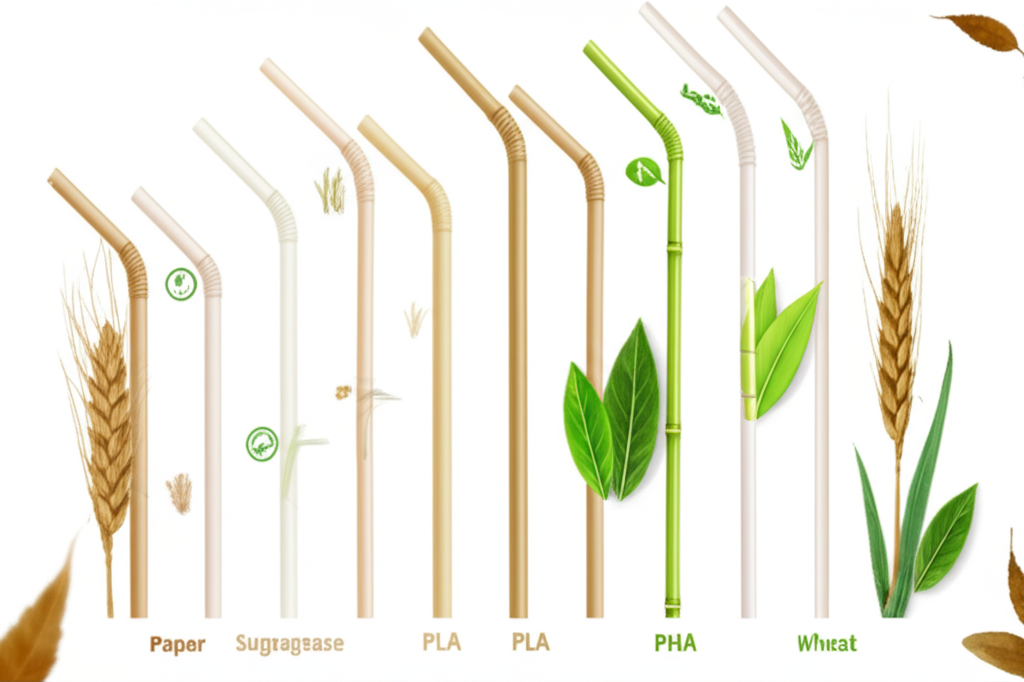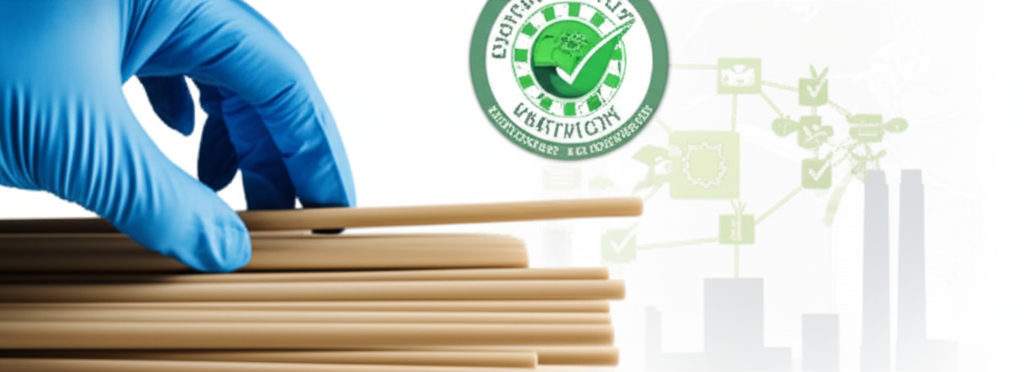The global tide has turned. Businesses worldwide are rapidly moving away from single-use plastics, driven by an urgent environmental imperative and increasingly stringent regulatory pressures. From comprehensive plastic bans sweeping across Europe to evolving consumer expectations in the US, the message is clear: sustainable choices are no longer optional but a strategic cornerstone for modern enterprises.
Beyond merely complying with regulations, this shift presents a significant opportunity to bolster brand reputation and meet burgeoning consumer demand. Data indicates that over 80% of consumers now express a preference for eco-friendly products, directly influencing purchasing decisions. For procurement and sustainability managers, this means integrating sustainable solutions isn’t just about avoiding penalties; it’s about seizing a competitive advantage and fostering deeper customer loyalty. However, navigating the “green wave” of biodegradable products can be complex. The market is rife with misconceptions, potential pitfalls like “greenwashing,” and hidden concerns such as the presence of PFAS “forever chemicals” in some seemingly innocuous paper straws. Understanding these complexities is the first step toward making truly impactful choices.

With the imperative to switch firmly established, the next challenge lies in identifying the right biodegradable straw solution for your specific operational needs. This requires a deep dive into material science, understanding that not all “biodegradable” claims are created equal. Different materials offer unique properties, strengths, and ideal applications for B2B settings.
Here’s a comparison of key biodegradable straw materials for commercial use:
- Pai de hartie:
- Pro: Generally affordable, widely available, highly customizable for branding.
- Cons: Can be prone to sogginess, especially with prolonged immersion or hot liquids; growing concerns about PFAS chemicals in some varieties used for water resistance.
- Sugarcane (Bagasse) Straws:
- Pro: Made from agricultural waste, remarkably sturdy and durable, excellent resistance to hot and cold beverages, often certified home compostable.
- Cons: May have a slightly rougher texture compared to plastic, potentially higher cost than basic paper.
- Paiele PLA (acid polilactic):
- Pro: Offers a plastic-like feel and good heat resistance, making for a familiar user experience.
- Cons: Requires specific industrial composting facilities to degrade effectively; does not break down in landfills or marine environments, often leading to similar environmental issues as traditional plastics if not properly disposed of.
- PHA (Polyhydroxyalkanoates) Straws:
- Pro: An emerging bioplastic that closely mimics traditional plastic performance, truly marine and home compostable, designed to leave no microplastics.
- Cons: Still an emerging technology, which can mean higher costs and potentially limited widespread availability compared to more established options.
- Bamboo/Wheat/Agave/Coffee Ground Straws:
- Pro: Offer a natural aesthetic, varying degrees of durability, and are generally compostable; some, like wheat straws, are noted for not getting soggy.
- Cons: Performance and availability can vary significantly by material and supplier; may have distinct textures or subtle aromas (e.g., coffee ground straws).

Beyond the raw material, real-world performance is paramount. A straw must maintain its integrity throughout a customer’s experience, resisting sogginess in both hot and cold beverages. The goal is to ensure a positive user experience that mirrors, or ideally surpasses, the convenience of traditional plastic straws, safeguarding your brand’s reputation for quality.
Selecting the right supplier is arguably the most critical step in this transition.
It’s about much more than just the product itself; it’s about aligning with a partner who can guarantee quality, ensure regulatory compliance, and uphold your brand’s commitment to genuine sustainability.
Navigating Certifications and Safety
Navigating the landscape of certifications is key. Look for reputable verifications such as BPI Certified Compostable (for the US market) or TÜV AUSTRIA and EN 13432 (essential for European compliance), which validate biodegradability claims. These certifications also ensure adherence to crucial food safety standards like those from the FDA in the US and various EU regulations. A critical concern, especially in Europe where studies have highlighted their prevalence, is the presence of PFAS chemicals. Prioritize suppliers who offer PFAS-free alternatives to mitigate risks to both public health and your brand integrity. This is a growing area of scrutiny for conscious businesses and consumers alike. Discover how momoio.com champions transparent and certified products to support your green initiatives at momoio.com/certified-sustainable-products.
Assessing Supply Chain Resilience
Beyond product certifications, assess the supplier’s capacity and supply chain resilience. Can they consistently meet your minimum order quantities (MOQs)? What are their lead times? Can they handle custom branding needs, such as logo printing, without compromising delivery schedules? A robust supply chain is non-negotiable for smooth operations.
Supplier’s Broader Sustainability Practices
Furthermore, delve into the supplier’s broader sustainability practices. Investigate their raw material sourcing – is it sustainable and ethical? Do their manufacturing processes adhere to environmental management standards like ISO 14001? Are they transparent about their carbon footprint and committed to fair labor practices? These elements are crucial for fulfilling your corporate social responsibility (CSR) objectives. The US and European markets are increasingly valuing this holistic approach to sustainability, making supplier transparency a competitive edge.

Consider the Return on Investment (ROI)
Consider the return on investment (ROI) of responsible sourcing. While high-quality, certified biodegradable straws might have a slightly higher upfront cost compared to conventional plastics, the long-term benefits are substantial. Enhanced brand reputation, increased customer loyalty, and the avoidance of future regulatory penalties or potential litigation stemming from unsustainable practices (like those related to PFAS) far outweigh initial cost differences. The global biodegradable straws market, projected to reach USD 204.167 billion by 2031, underscores the significant market shift and the value of being an early, strategic adopter. Learn more about making a seamless transition to sustainable packaging and supply chain management atmomoio.com/sustainable-packaging-solutions.
The strategic decision to partner with the right biodegradable straw supplier is a powerful declaration of your company’s commitment to environmental stewardship. It positions your business as a leader in eco-innovation, offering a significant competitive differentiator in a market increasingly swayed by sustainable values.
By making this smart switch, you not only align with growing consumer preferences and stringent global regulations but also drive tangible operational efficiencies. High-quality biodegradable straws can streamline waste management processes, significantly reduce your contribution to landfills, and align your operations with core circular economy principles. This thoughtful choice resonates deeply with stakeholders, from investors to end-consumers, enhancing your brand’s appeal and securing its relevance in a sustainable future.
Ready to make an impactful and truly sustainable switch?
Elevate your brand with products that speak to your values.
- Explore a curated selection of certified, high-performance biodegradable straw materials tailored to your specific operational needs. Visit momoio.com/eco-friendly-straw-solutions to see our comprehensive range.
- Schedule a no-obligation consultation with our sustainability experts today to discuss compliance, explore cost savings, and plan a seamless integration into your supply chain.
- Receive a comprehensive guide to understanding certifications and maximizing the environmental impact of your disposable products, ensuring your choices are genuinely green.
Further Resources:
- For further insights into the global plastic waste crisis and its impact, explore reports from organizations like the UN Environment Programme.
- To delve deeper into the specifics of compostable product certifications, refer to resources from the Biodegradable Products Institute (BPI).
- Understand the evolving landscape of global regulations on single-use plastics by consulting authoritative sources such as the European Commission’s Directorate-General for Environment.






